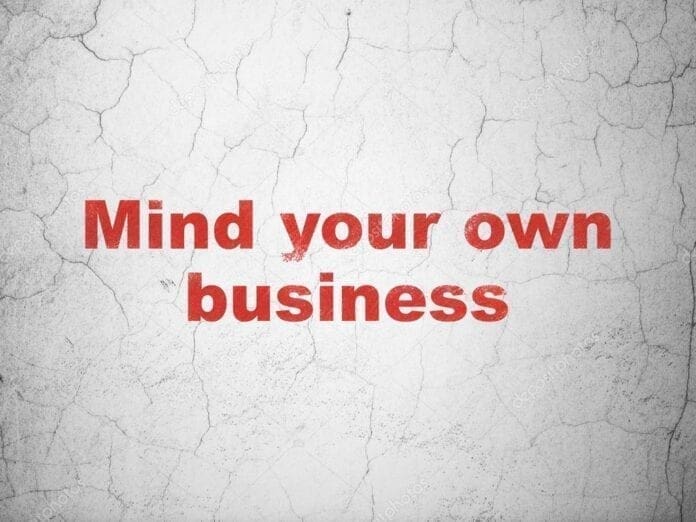Isn’t it amazing how much of our time we spend in our emotions, especially these days? Probably because we’ve been in our houses for six months with little to no outside interaction. I believe we are all suffering from COVID-19 fatigue.
Without getting into my personal feelings (see, I’m mindful) about the replacement for RBG, I think it’s a great example. One of my U.S. senators posted their support for the hasty replacement, despite what they said about it in 2016, and I voiced my opinion in the comment section. My comment was about how I hoped to never hear this particular senator talking about empowering young women again. That’s all I said, nothing more and nothing less.
Well, wouldn’t you know that not long after my comment began to get “likes,” some man who is not known to me comes at me about abortion. I never mentioned abortion. I never mentioned anything. But he made sure he responded with what he, a stranger, thought he knew I meant when, in fact, it wasn’t abortion that was on my mind, and all I felt from him was emotion.
But since he brought it up, I asked what his plan was to ensure that every woman was provided affordable and quality health insurance and care. I asked what his plan was to end poverty for the women who find themselves raising kids alone while there’s zero accountability for the men who leave and don’t pay child support.
And Then He Left
His answer failed to answer any of the questions I had posed. His next response was far less emotional, *sarcasm*, which was shown by using the words “libtard” and “Judeo Christianity” in the same sentence, and then he left. Like, he dirty deleted his comments, left. Like must have seen the screenshot (without his name but of the words) and meme that I shared, left. He obviously didn’t want to react in any way other than emotionally and refused to think about abortion any further than “it’s wrong.” I didn’t respond out of my emotions because if I’ve learned one thing from working with people all my life, it’s that people make decisions based upon their circumstances, and I don’t know anyone’s actual circumstance if I’m not a part of it.
I wish the nation would get as emotional about all of our issues as they do abortion. We should be as emotional about people experiencing hunger, systemic racism, homelessness, unaffordable health insurance, sexual abuse, to name a few. There are always circumstances that create our political issues, and poverty is quite often involved in each and every one of them. Women, though this is going to make some of you, male or female, mad, hold the brunt of it.
Think about the last time you’ve heard someone attack a single dad for having a child out of wedlock. I’ll wait … because I have never witnessed it. The public will tell us women that we shouldn’t need government assistance because people are tired of “taking care of our kids.” We shouldn’t need free health care because then we’re socialists. We shouldn’t be allowed to use our health insurance for birth control because we shouldn’t be having sex. And we shouldn’t be responsible for our own bodies because … because people refuse to look at the ends to the means.
Judging Others
How can we fault people for resorting to a desperate end to a desperate means? There’s a famous quote that comes to mind by Desmond Tutu: “There comes a point where we need to stop just pulling people out of the river. We need to go upstream and find out why they’re falling in.”
Every day people are making decisions for themselves that don’t align with what I would or wouldn’t do because I’m not them. There’s no way that I feel obligated to judge another based on where I am in life, whether that’s physically, mentally, or emotionally.
Take this for example: One of my daughters had been shopping with a friend and said that they were pretty sure a woman had stolen something in the self-checkout. They decided to say nothing because what if they were wrong and caused her bigger troubles. She asked if I thought they were wrong, and I told her no. If someone is desperate enough to steal something then they are probably making a desperate decision out of a desperate need. And a fine or imprisonment isn’t going to solve whatever the underlying issue was in the first place.
When we begin to work on solutions for the underlying problems then we will see less of the problems. Remember, we don’t know what we would do if we were in someone else’s shoes because every circumstance would be different.
Onward,
Amy Jo


